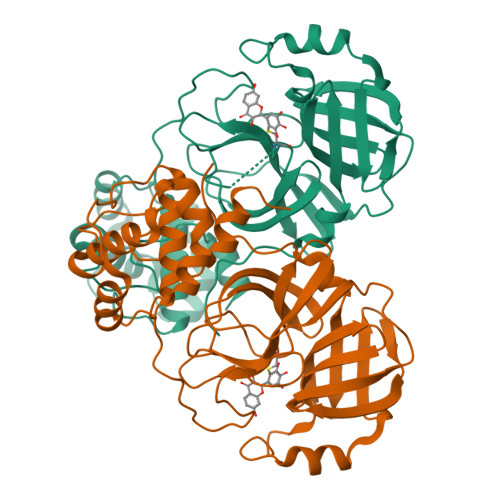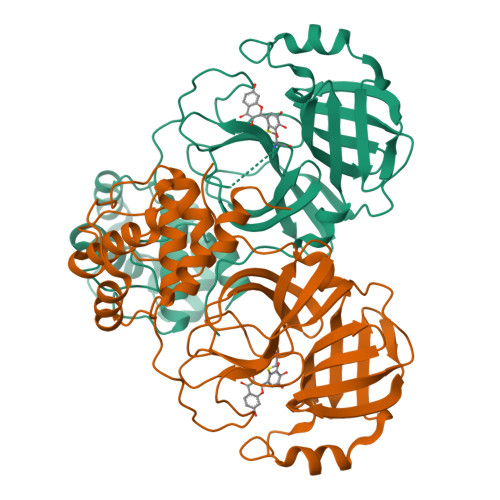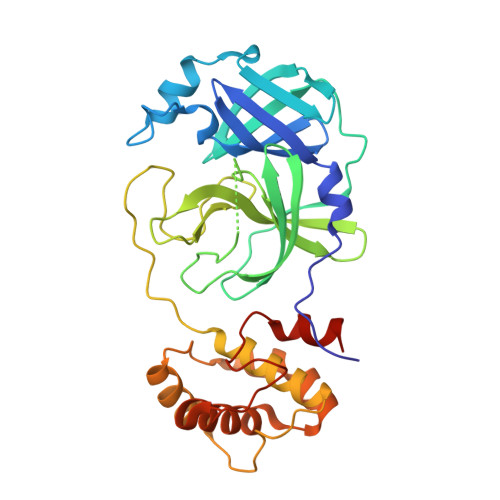Discovery of Polyphenolic Natural Products as SARS-CoV-2 M pro Inhibitors for COVID-19.
Kruger, N., Kronenberger, T., Xie, H., Rocha, C., Pohlmann, S., Su, H., Xu, Y., Laufer, S.A., Pillaiyar, T.(2023) Pharmaceuticals (Basel) 16
- PubMed: 37259339
- DOI: https://doi.org/10.3390/ph16020190
- Primary Citation of Related Structures:
8HI9 - PubMed Abstract:
The severe acute respiratory syndrome coronavirus 2 (SARS-CoV-2) has forced the development of direct-acting antiviral drugs due to the coronavirus disease 2019 (COVID-19) pandemic. The main protease of SARS-CoV-2 is a crucial enzyme that breaks down polyproteins synthesized from the viral RNA, making it a validated target for the development of SARS-CoV-2 therapeutics. New chemical phenotypes are frequently discovered in natural goods. In the current study, we used a fluorogenic assay to test a variety of natural products for their ability to inhibit SARS-CoV-2 M pro . Several compounds were discovered to inhibit M pro at low micromolar concentrations. It was possible to crystallize robinetin together with SARS-CoV-2 M pro , and the X-ray structure revealed covalent interaction with the protease's catalytic Cys145 site. Selected potent molecules also exhibited antiviral properties without cytotoxicity. Some of these powerful inhibitors might be utilized as lead compounds for future COVID-19 research.
Organizational Affiliation:
Infection Biology Unit, German Primate Center, Leibniz Institute for Primate Research Göttingen, Kellnerweg 4, 37077 Göttingen, Germany.



















